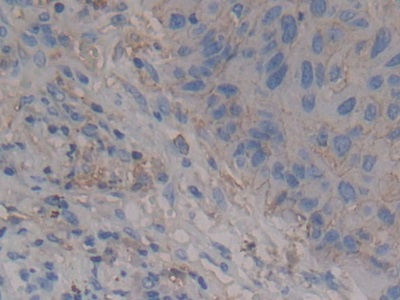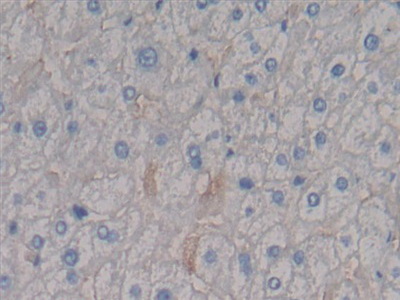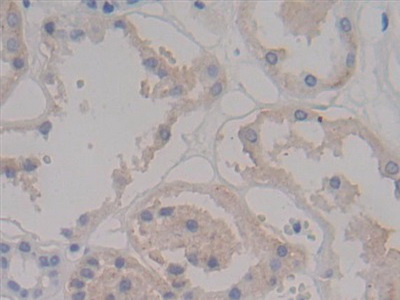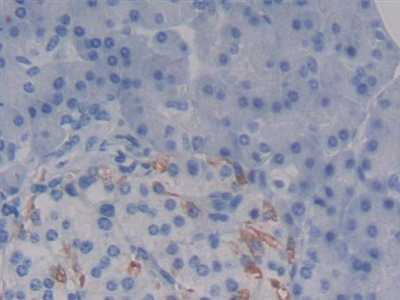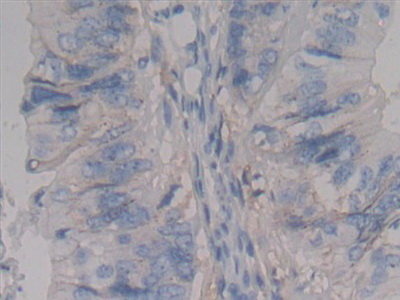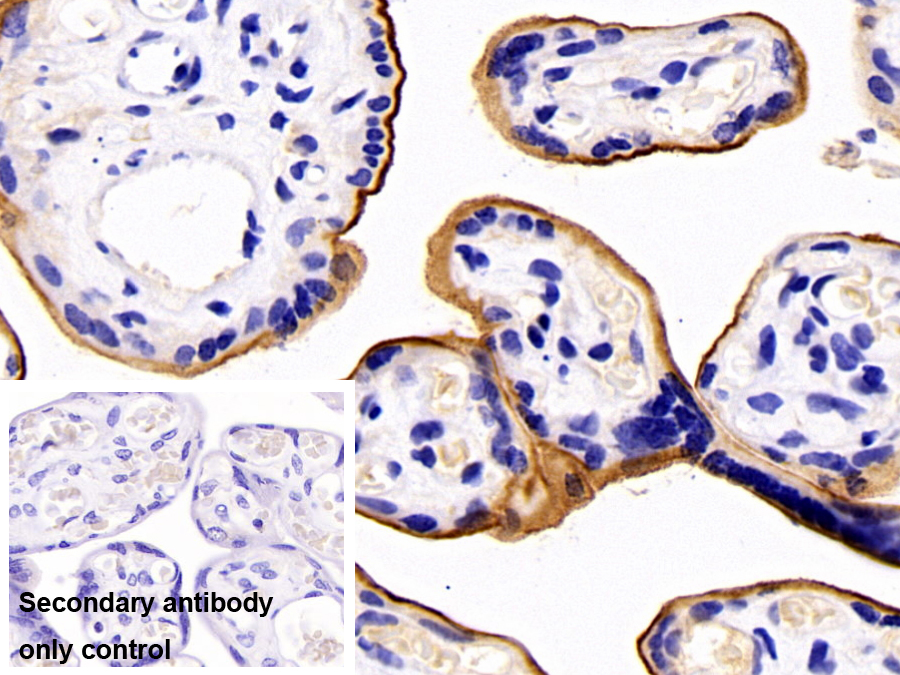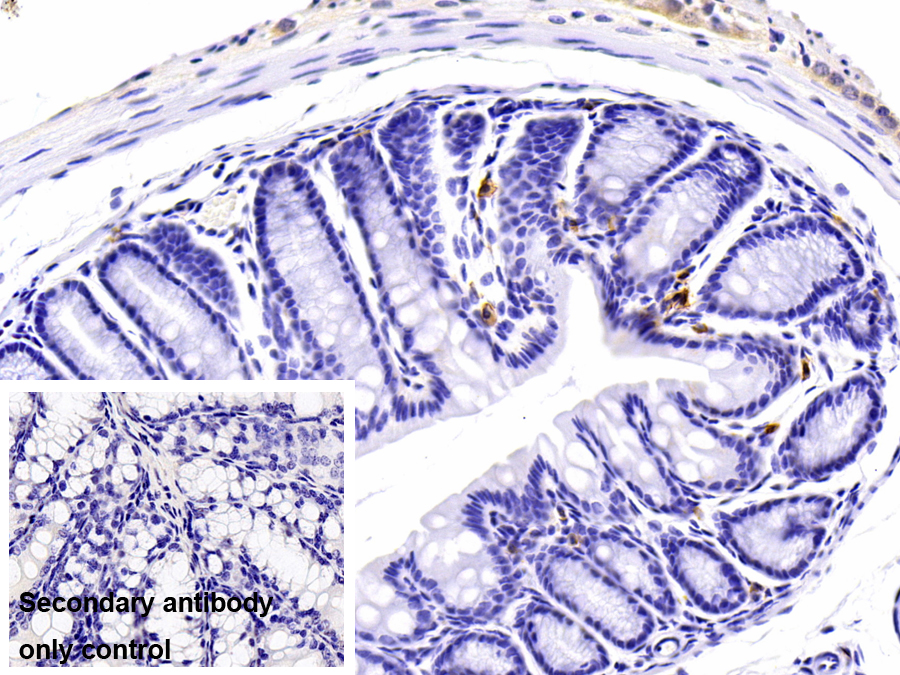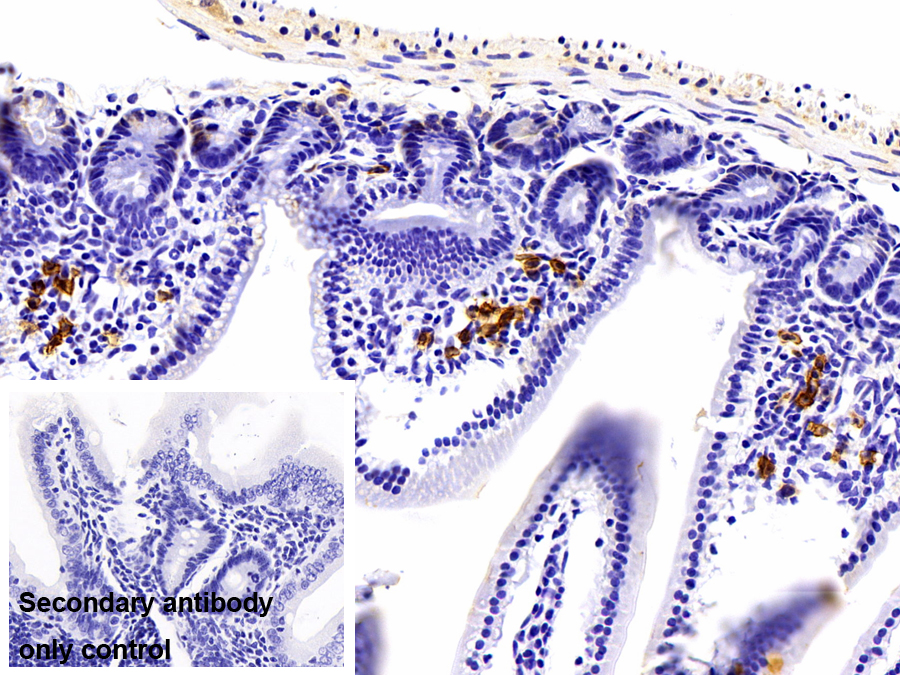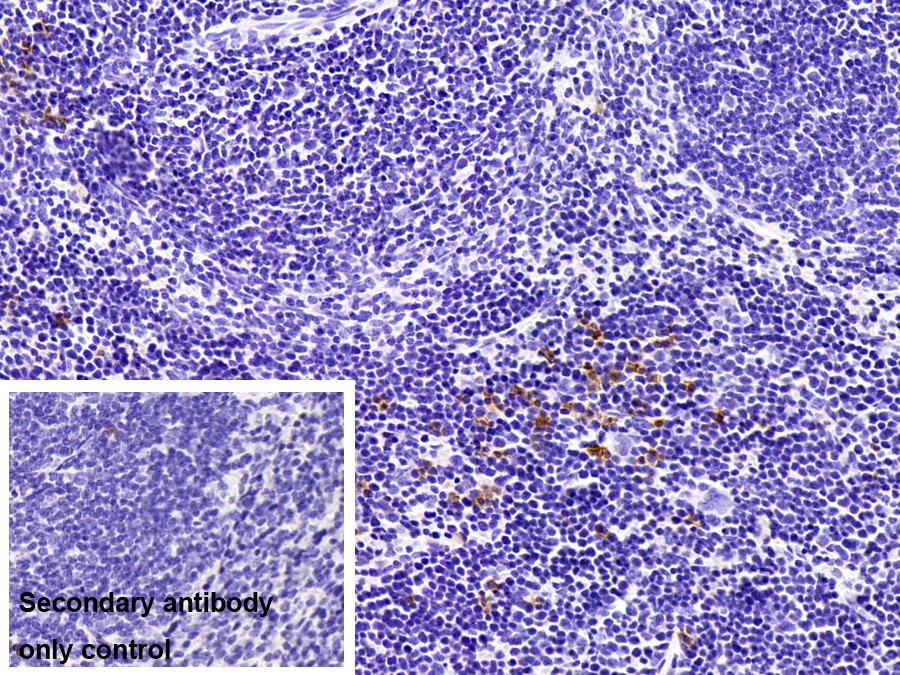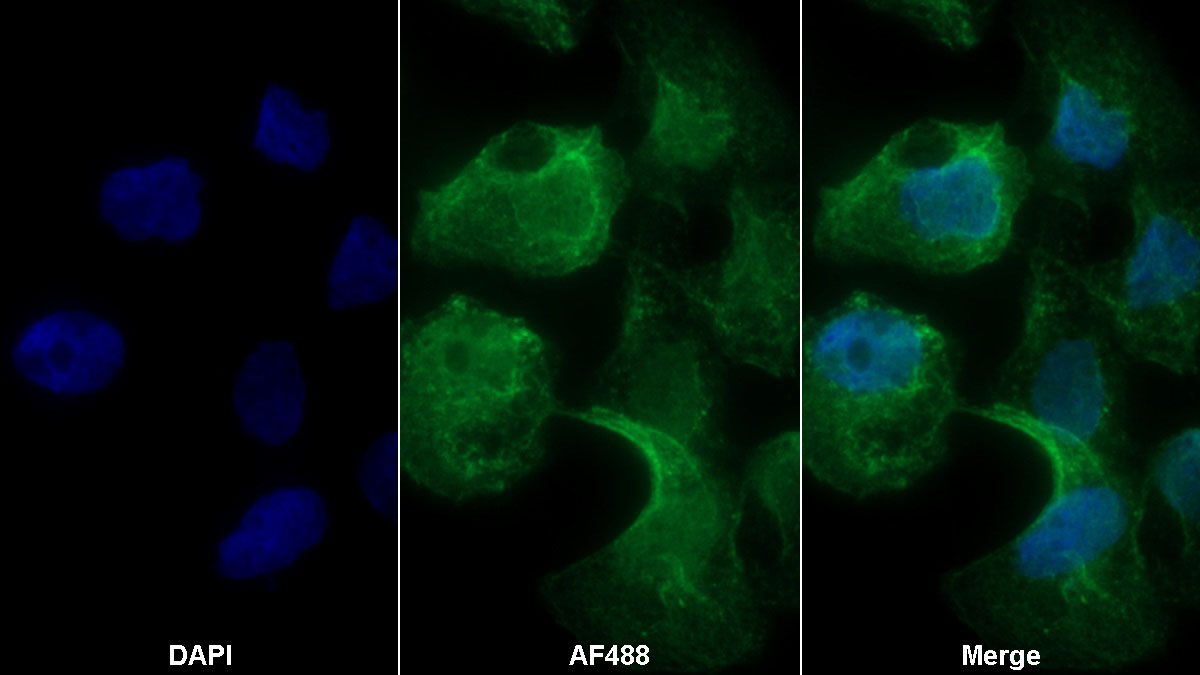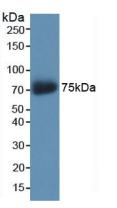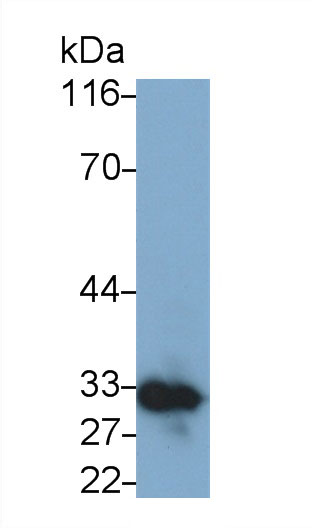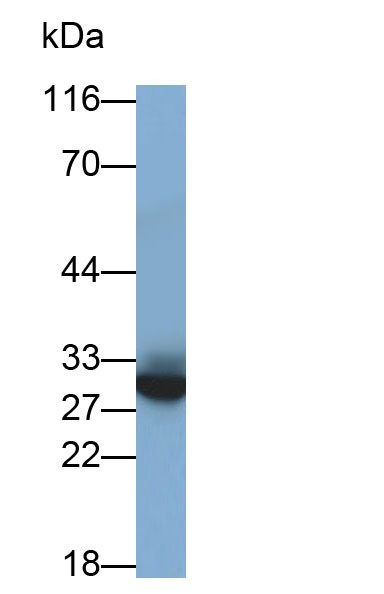Polyclonal Antibody to Syndecan 1 (SDC1) 

CD138; SDC; SYND1; Syndecan Proteoglycan 1
Overview
Properties
- Product No.PAB966Hu01
- Organism SpeciesHomo sapiens (Human) Same name, Different species.
- ApplicationsWB; IHC; ICC/IF
If the antibody is used in flow cytometry, please check FCM antibodies.
Research use only - DownloadInstruction Manual
- CategoryTumor immunityInfection immunityImmunodeficiency
- SourcePolyclonal antibody preparation, Host Rabbit
- Ig Type IgG, Potency n/a
- PurificationAntigen-specific affinity chromatography followed by Protein A affinity chromatography
- LabelNone
- Immunogen RPB966Hu01-Recombinant Syndecan 1 (SDC1)
- Buffer Formulation0.01M PBS, pH7.4, containing 0.05% Proclin-300, 50% glycerol.
- TraitsLiquid, Concentration 0.5mg/mL
Sign into your account
Share a new citation as an author
Upload your experimental result
Review

Contact us
Please fill in the blank.
Specifity
The antibody is a rabbit polyclonal antibody raised against SDC1. It has been selected for its ability to recognize SDC1 in immunohistochemical staining and western blotting.
Usage
Western blotting: 0.01-2µg/mL;
Immunohistochemistry: 5-20µg/mL;
Immunofluorescence: 5-20µg/mL;
Optimal working dilutions must be determined by end user.
Storage
Store at 4°C for frequent use. Stored at -20°C in a manual defrost freezer for two year without detectable loss of activity. Avoid repeated freeze-thaw cycles.
Stability
The thermal stability is described by the loss rate. The loss rate was determined by accelerated thermal degradation test, that is, incubate the protein at 37°C for 48h, and no obvious degradation and precipitation were observed. The loss rate is less than 5% within the expiration date under appropriate storage condition.
Organism Species More: Mus musculus (Mouse)Giveaways
Increment services
-
 Antibody Labeling Customized Service
Antibody Labeling Customized Service
-
 Protein A/G Purification Column
Protein A/G Purification Column
-
 Staining Solution for Cells and Tissue
Staining Solution for Cells and Tissue
-
 Positive Control for Antibody
Positive Control for Antibody
-
 Tissue/Sections Customized Service
Tissue/Sections Customized Service
-
 Phosphorylated Antibody Customized Service
Phosphorylated Antibody Customized Service
-
 Western Blot (WB) Experiment Service
Western Blot (WB) Experiment Service
-
 Immunohistochemistry (IHC) Experiment Service
Immunohistochemistry (IHC) Experiment Service
-
 Immunocytochemistry (ICC) Experiment Service
Immunocytochemistry (ICC) Experiment Service
-
 Flow Cytometry (FCM) Experiment Service
Flow Cytometry (FCM) Experiment Service
-
 Immunoprecipitation (IP) Experiment Service
Immunoprecipitation (IP) Experiment Service
-
 Immunofluorescence (IF) Experiment Service
Immunofluorescence (IF) Experiment Service
-
 Buffer
Buffer
-
 DAB Chromogen Kit
DAB Chromogen Kit
-
 SABC Kit
SABC Kit
-
 Long-arm Biotin Labeling Kit
Long-arm Biotin Labeling Kit
-
 Real Time PCR Experimental Service
Real Time PCR Experimental Service
Citations
- Increased level of soluble syndecan-1 in serum correlates with myocardial expression in a rat model of myocardial infarctionSpringerLink: a201w3l18k257462
- Sdc1 Overexpression Inhibits the p38 MAPK Pathway and Lessens Fibrotic Ventricular Remodeling in MI RatsSpringer: Source
- Damage of the endothelial glycocalyx in chronic kidney diseasePubmed:24727235
- Effect of valproic acid and injury on lesion size and endothelial glycocalyx shedding in a rodent model of isolated traumatic brain injuryPubmed:25058256
- Impairment of the Endothelial Glycocalyx in Cardiogenic Shock and its Prognostic RelevancePubmed:25692257
- Dexamethasone Suppressed LPS-Induced Matrix Metalloproteinase and Its Effect on Endothelial Glycocalyx SheddingPubMed: 26199464
- Platelet-Derived Growth Factor-B Protects Rat Cardiac Allografts From Ischemia-reperfusion Injury.PubMed: 26371596
- Dual antiplatelet and anticoagulant APAC prevents experimental ischemia–reperfusion-induced acute kidney injurypubmed:27405618
- Endothelial glycocalyx layer shedding following lung resectionpubmed:27643669
- Resuscitation with Pooled and Pathogen-Reduced Plasma Attenuates the Increase in Brain Water Content following Traumatic Brain Injury and Hemorrhagic Shock in Rats10.1089
- Resuscitation with pooled and pathogen-reduced plasma attenuates the increase in brain water content following traumatic brain injury and hemorrhagic shock in rats the rat.doi/10.1089/neu.2016.4574
- Volume kinetics of Ringer's lactate solution in acute inflammatory disease10.1016:j.bja.2018.04.023
- MPO (myeloperoxidase) reduces endothelial glycocalyx thickness dependent on its cationic chargePubmed:29903730
- Plasma resuscitation improved survival in a cecal ligation and puncture rat model of sepsisPubmed:28591008
- Experimental models of endotheliopathy: impact of shock severityPubmed:28697004
- Effects of propranolol and clonidine on brain edema, blood-brain barrier permeability, and endothelial glycocalyx disruption after fluid percussion brain injury in the ratPubmed:28930945
- The Endothelial Glycocalyx in the Peritoneal Microcirculation of Rats with Chronic Kidney Failure Exposed to Dialysis Solutions173015_06.pdf
- Plasma ameliorates endothelial dysfunction in burn injuryDoi: 10.1016/j.jss.2018.08.027
- Dexmedetomidine preserves the endothelial glycocalyx and improves survival in a rat heatstroke modelPubmed: 30374889
- Postoperative microcirculatory perfusion and endothelial glycocalyx shedding following cardiac surgery with cardiopulmonary bypassPubmed: 30687934
- Microvascular alterations during cardiac surgery using a heparin or phosphorylcholine coated circuitPubmed: 31787433
- Increased syndecan-1 and glypican-3 predict poor perinatal outcome and treatment resistance in intrahepatic cholestasis: Syndecan-1, glypican-3 and ICPPubmed: 31919038
- Heparin Binding Protein and Endothelial Glycocalyx Markers in Severe COVID-19–A Prospective Observational Cohort Study
- Newly Developed Recombinant Antithrombin Protects the Endothelial Glycocalyx in an Endotoxin-Induced Rat Model of Sepsis33375342
- Effect of liraglutide on microcirculation in rat model with absolute insulin deficiency34119534
- The effect of pre-operative methylprednisolone on postoperative delirium in elderly patients undergoing gastrointestinal surgery: a randomized, double-blind, placebo …34423832
- Inhalation of 2% hydrogen improves survival rate and attenuates shedding of vascular endothelial glycocalyx in rats with heat stroke34524269
- Dexmedetomidine suppresses serum syndecan-1 elevation and improves survival in a rat hemorrhagic shock modelPubmed:35110424
- Resuscitation of hemorrhagic shock using normal saline does not damage the glycocalyx in the immediate resuscitation phase





